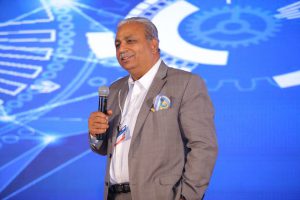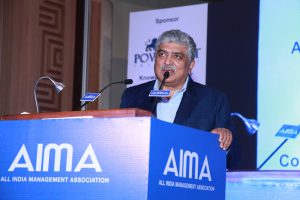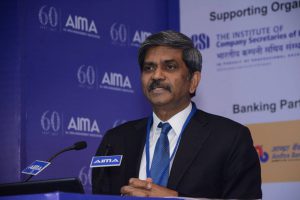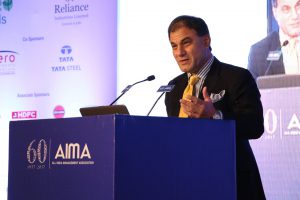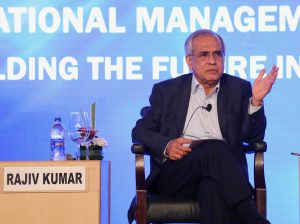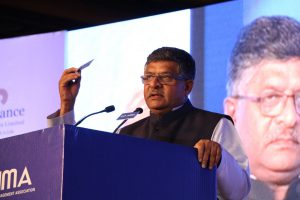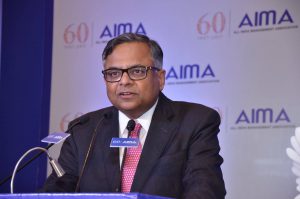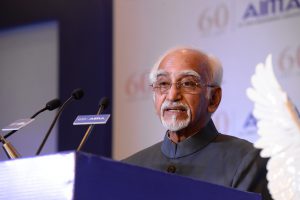Rakeysh Omprakash Mehra, Film Director, Producer, Screenwriter sharing key insights on the ‘Future of Indian #Cinema’ at #AIMA‘s Diamond Jubilee National Management Convention (#NMC) 2017. Read excerpts –

Rakeysh Omprakash Mehra Film Director, Producer, Screenwriter delivering a Keynote Address at #DiamondJubileeNMC
To understand any future let’s understand the past first. We got independence in 1947 and our early films, like the first five-year plan, had a lot of hope. It was about a nation coming together, a nation was born and there were a lot of dreams at that point in time because we were building a nation. We had films like “Naya daur, Saathi hath badhana, Ye desh hai veer javano ka ” and those were the kind of emotions but something started happening towards the end of the 1950s. For the first time we saw the main protagonist, and no gender bias here but mostly that time it was male-dominated kind of stories being told as the main protagonist, and for the first time we saw a hero being a black marketer in Devanand in Kalabazar. So here was the nation who had a problem with police coming into the neighborhood not even into their homes and we then accepted a hero who was actually a black marketer, a thief, Jaal all these movies. What happened? Was it the Bengal Drought? Was it the two wars with Pakistan, was it poverty, had we woken up from the dream of independence in free India and we understood what a momentous task lies in front of us after gaining the independence and then we lost the China war and movies were reflecting that. Every youngster wanted to have a stubble like Devdas and die as such. You know it was a doomsday kind of thing. “Jinhe naaz hai hind par wo kaha hai, Jalado jalado ye duniya” it became the iconic and the subconscious of the nation. The political system was failing; the first prime minister was dead, there were chaos, joblessness, long lines for everything. We didn’t have any ideology, neither capitalist nor communist, it was a mixed economy. We wanted to take the good of both the economies and also attracted the evil of both the systems as such and became expert at that, as the time would tell. So we invented escapist cinema and somewhere in the late 60s our hero, which is Shamikapoor, started dancing, he started that. So we accepted a new kind of man who now dances he is still dancing I don’t know why but maybe we still need that escapism. It always beats me. So if you notice, a lot of us would know that the hero before Shamikapor never danced. Dileep kumar, Devanand, Rajkapoor, Motilal, Ashok Kumar, K.L Sehgal the iconic ones, they never danced. We left it to the grace of the fairer sex. And in those even dances were very classical.
Continue reading →
